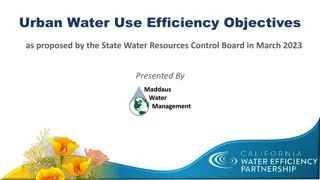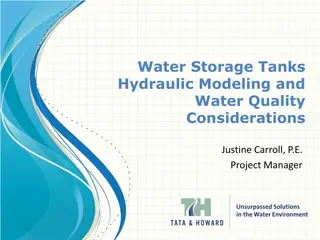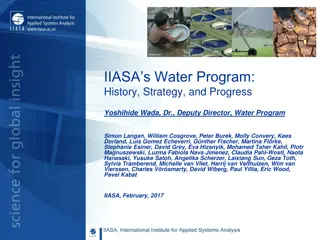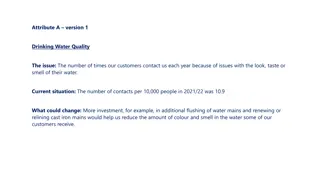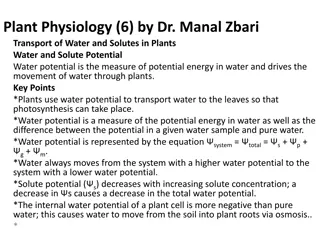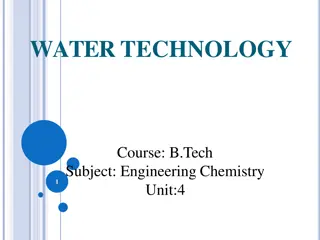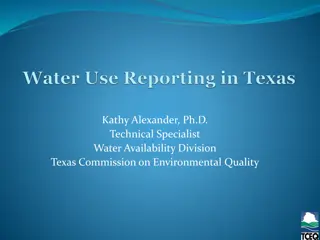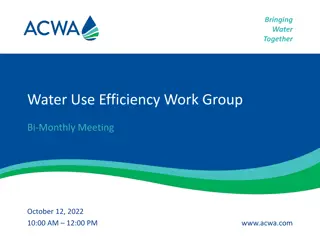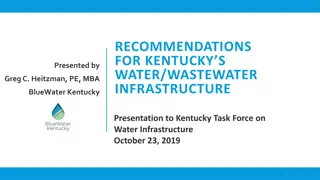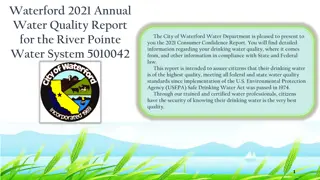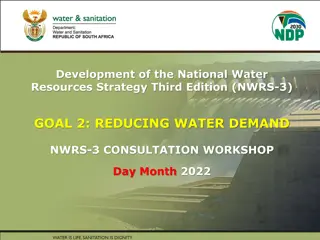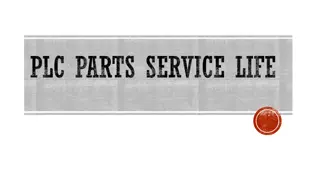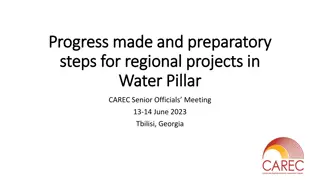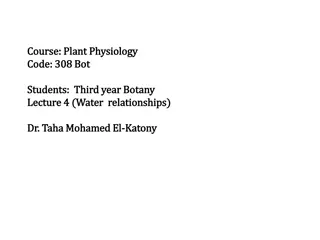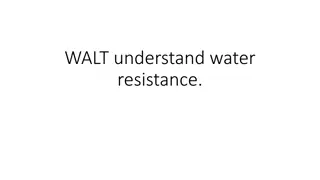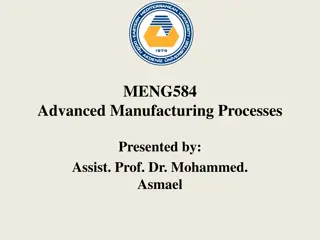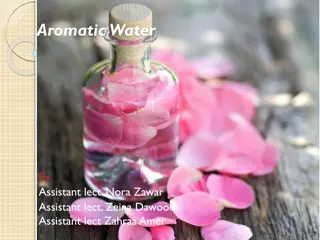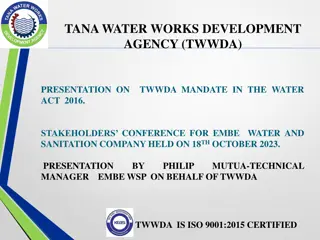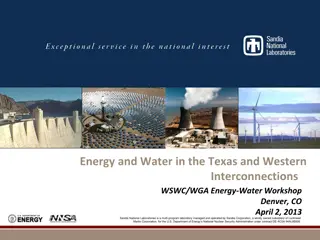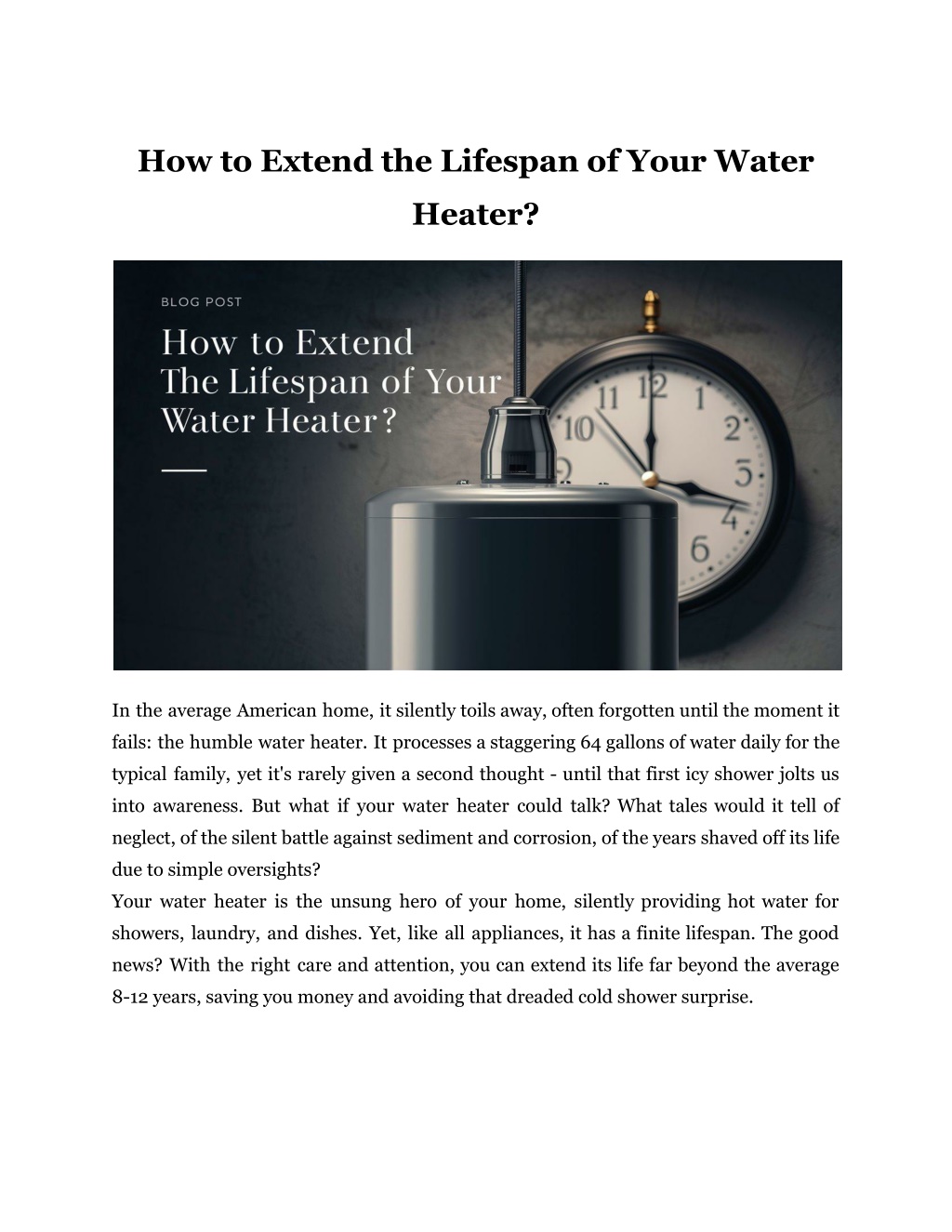
How to Extend the Lifespan of Your Water Heater?
Discover practical tips to extend your water heater's lifespan. Learn maintenance hacks to keep it running efficiently for years.
Download Presentation

Please find below an Image/Link to download the presentation.
The content on the website is provided AS IS for your information and personal use only. It may not be sold, licensed, or shared on other websites without obtaining consent from the author. Download presentation by click this link. If you encounter any issues during the download, it is possible that the publisher has removed the file from their server.
E N D
Presentation Transcript
How to Extend the Lifespan of Your Water Heater? In the average American home, it silently toils away, often forgotten until the moment it fails: the humble water heater. It processes a staggering 64 gallons of water daily for the typical family, yet it's rarely given a second thought - until that first icy shower jolts us into awareness. But what if your water heater could talk? What tales would it tell of neglect, of the silent battle against sediment and corrosion, of the years shaved off its life due to simple oversights? Your water heater is the unsung hero of your home, silently providing hot water for showers, laundry, and dishes. Yet, like all appliances, it has a finite lifespan. The good news? With the right care and attention, you can extend its life far beyond the average 8-12 years, saving you money and avoiding that dreaded cold shower surprise.
How to Extend the Lifespan of Your Water Heater? 1. Understanding Your Water Heater Before diving into maintenance tips, it's crucial to understand the type of water heater you have. The two main types are: Tank Water Heaters: These store and heat water in a large tank. Tankless Water Heaters: These heat water on demand as it flows through the unit. Each type has its own maintenance needs, but many principles apply to both. Knowing your water heater type will help you tailor your maintenance routine effectively. 2. Regular Maintenance: The Key to Longevity Regular maintenance is the cornerstone of extending your water heater's lifespan. Here's a breakdown of essential maintenance tasks: Flush the Tank Annually Sediment buildup is the enemy of water heater efficiency. Flushing your tank annually can prevent this issue: Turn off the power supply (gas or electric) Connect a garden hose to the drain valve Open the valve and let the water run until it's clear Close the valve and refill the tank For tankless units, flushing involves circulating a vinegar solution through the system to remove mineral deposits. Read More Articles: The Importance of Regular Maintenance for Your Water Heater Check the Anode Rod The anode rod is your water heater's first line of defense against corrosion. Inspect it every 3-5 years and replace it if it's severely corroded.
Test the Pressure Relief Valve This safety feature prevents excessive pressure buildup. Test it annually by lifting the lever and ensuring water flows out. Insulate the Tank and Pipes Proper insulation can reduce heat loss and improve efficiency. Use an insulation blanket for the tank and foam pipe insulation for exposed pipes. Task Frequency Tank Heater Tankless Heater Flush Annually Check Anode Rod Every 3-5 years N/A Test Pressure Relief Valve Annually Insulate Once annually) (check Pipes only 3. Professional Water Heater Installation: Setting the Foundation Proper water heater installation is crucial for long-term performance. While DIY installation might seem tempting, professional installation offers several benefits: Correct sizing for your home's needs Proper connection to gas or electrical systems Compliance with local building codes Optimal placement for efficiency and safety A professional installation sets the stage for a long-lasting, efficient water heater. If you're replacing an old unit, consider this an opportunity to upgrade to a more energy-efficient model. 4. Timely Water Heater Repair: Addressing Issues Promptly Even with regular maintenance, issues can arise. Prompt water heater repair can prevent minor problems from becoming major headaches:
Leaks: Small leaks can quickly escalate. If you notice any water around your heater, investigate immediately. Strange Noises: Rumbling or popping sounds often indicate sediment buildup. Inconsistent Temperature: This could signal a failing heating element or thermostat. When in doubt, consult a professional. Timely repairs can extend your water heater's life and prevent costly replacements. 5. Optimizing Water Heater Performance Beyond maintenance and repairs, several strategies can optimize your water heater's performance and lifespan: Set the Right Temperature The Department of Energy recommends setting your water heater to 120 F (49 C). This temperature is hot enough for most household needs while preventing scalding and reducing energy consumption. Use a Water Softener Hard water can accelerate sediment buildup and corrosion. A water softener can mitigate these issues, extending your water heater's life. Manage Water Pressure Excessive water pressure can strain your water heater. Install a pressure-reducing valve if your home's water pressure exceeds 80 psi. Consider a Tankless Water Heater While more expensive upfront, tankless water heaters often have longer lifespans and greater energy efficiency. When it's time for a replacement, this could be a worthwhile upgrade. A recent study found that tankless water heaters can be 24-34% more energy efficient than conventional storage tank water heaters for homes that use 41 gallons or less of hot
water daily. This efficiency can translate to significant energy savings and a longer lifespan for the unit. Read More Articles: What Technology Is Typically Used For Proximity Card Readers? 6. Signs It's Time for a Replacement Despite your best efforts, there will come a time when replacement is necessary. Look out for these signs: Age: If your water heater is over 10 years old, start planning for replacement. Rusty Water: This indicates internal corrosion. Frequent Repairs: If repair costs are mounting, replacement might be more cost-effective. Decreased Efficiency: Rising energy bills could signal a failing water heater. 7. The Environmental Impact of Water Heater Maintenance Maintaining your water heater isn't just good for your wallet; it's also beneficial for the environment. An efficient water heater uses less energy, reducing your carbon footprint. Additionally, proper maintenance reduces the frequency of replacements, minimizing waste. Invest in Your Water Heater's Future Your water heater is a vital component of your home's comfort and functionality. By following these maintenance tips, addressing repairs promptly, and optimizing performance, you can significantly extend its lifespan and improve its efficiency. Remember, while many maintenance tasks can be DIY, some aspects of water heater care require professional expertise. That's where CLT Appliance Repair comes in. Our team of experienced technicians specializes in water heater installation, maintenance, and repair. We're committed to helping you get the most out of your water heater, ensuring you enjoy hot water reliably for years to come. Invest in your water heater's future today, and enjoy the comfort of reliable hot water tomorrow!
Site Article: How to Extend the Lifespan of Your Water Heater?








